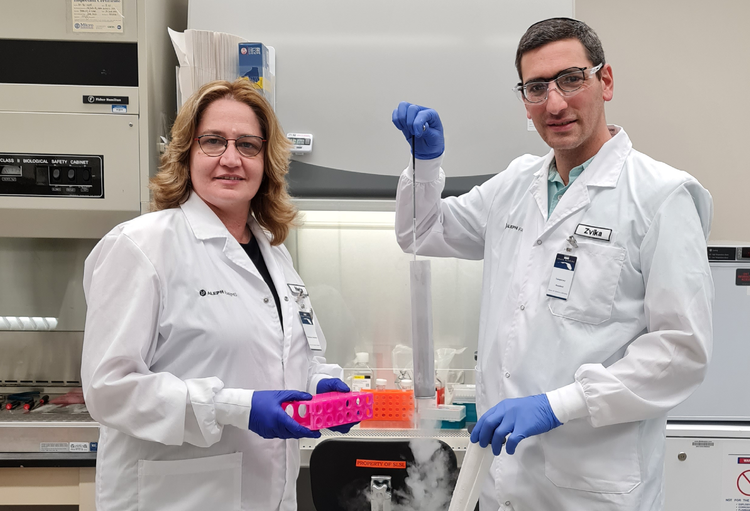This week, four SpaceX crew members will conduct groundbreaking experiments on cultivated meat in space. The historic Axiom-1 mission is the first fully private spaceflight to the International Space Station, and among other experiments, will test the effects of microgravity on the formation of muscle tissue cultivated by Aleph Farms.
Sending cells to space
Scheduled to launch on April 8, the SpaceX Dragon crew includes Israeli philanthropist Eytan Stibbe, who will transport Aleph’s “Lab-on-a-Chip” device aboard the ISS and connect it to the station’s power and monitoring systems, which will be overseen by researchers on Earth. Lab-on-a-Chip is described as a microfluidic device that carries living cells in a nutrient-rich growth medium, and was co-developed with SpacePharma.
Through the experiment, Aleph researchers hope to discover how microgravity impacts the proliferation and differentiation of bovine cells used in its cultivated steak.

A better cultivation platform
“Understanding processes in such an extreme environment, like space, will allow us to eventually develop an automated, closed-loop system that can produce steaks during long-term space missions. Similar to car manufacturers and Formula One, in space we are developing the most efficient processes under the toughest environments,” says Aleph Farms.
According to an Axiom spokesperson, “Extended exploration in space, such as traveling to Mars, is limited by the ability to provide astronauts with quality nutrition…Aleph Farms is developing a technology platform for producing cultured beef steaks in a process that consumes a significantly lower portion of the resources needed to raise a whole animal for meat.”

Growing research support
Several days ago, the European Space Agency (ESA) announced a project for exploring the possibility of space-based cultured meat production. Experts will assess various means of protein production and present preliminary designs for cultivating meat on long space voyages, reports Republic World.
Such research will likely improve the efficiency of cultivated meat production on Earth.
“The processes we are validating in space can then be transferred to our mainstream production on Earth to help us increase efficiencies…Our space program will ultimately help us develop more sustainable and resilient food systems anywhere.”






